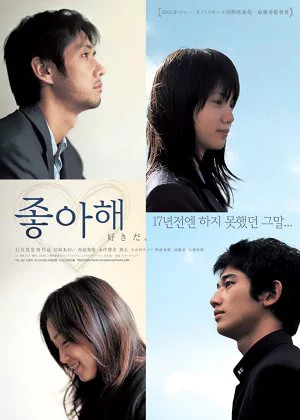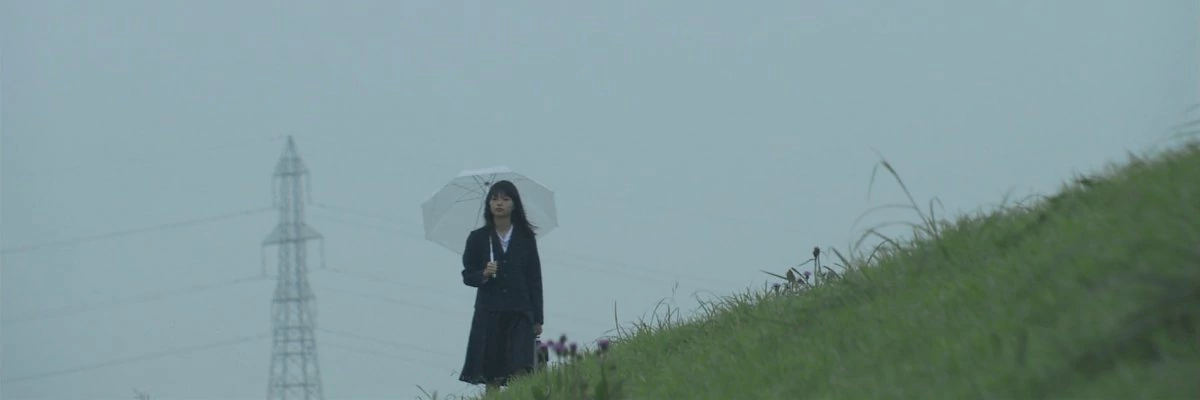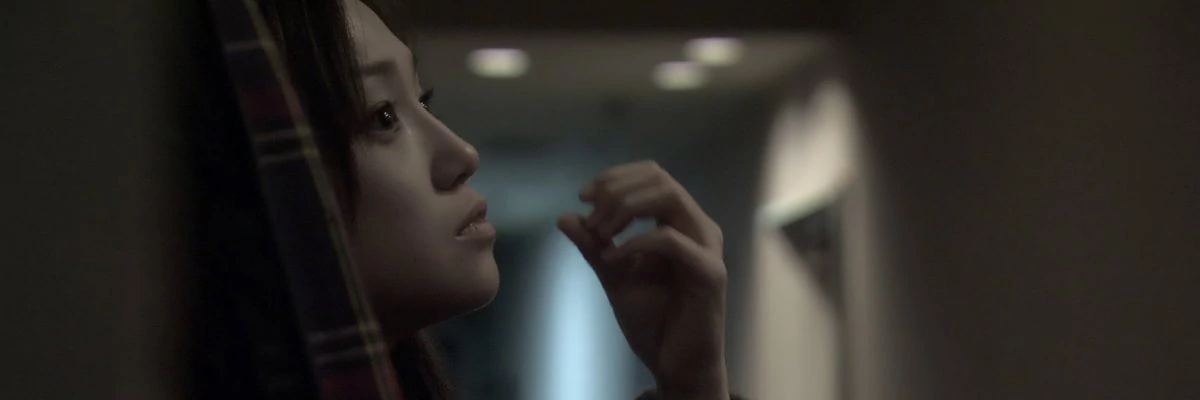Su-ki-da

When Hiroshi Ishikawa released Tokyo.sora, he proved once and for all that directors of advertisements are capable of more than just a few flashy climaxes. For those who still considered his first film a lucky coincidence though, Ishikawa made Su-ki-da, the definite proof that the man is a master of minimal cinema. As a relentless love story of two people who have a hard time expressing their emotions, Su-ki-da defines the very core of the Japanese drama genre.

Minimalism is often considered one of the hardest styles to pull off. While I think it isn't necessarily more difficult than any other style or genre, the risk of failing is probably much greater than with any other type of film. When attempting a minimalist approach, a director has very little to fall back on. All parts of the film have to work perfectly together to get the emotions across. If even just one of these elements fails, the film crumbles and all that's left is a sense of tediousness and boredom, not really the kind of emotions you're trying to get across as a film maker.
Su-ki-da offers the viewer very little in the sense of amusement. Ishikawa follows two characters and their exploration of the feelings they have for each other. The first part of the film tracks them down when they are still in high school, the second part takes a 17-year leap, to when they are finally reunited. The focus of the film is very narrow, with very few secondary characters and many of the film's core scenes documenting what happens when the two lovers are together.
Their failure to communicate is one of the big themes of the film. It's clear that both characters feel deeply for each other, but they constantly fail to express their true feelings. The longer they wait, the harder it gets to reach out and slowly they are pushing themselves away from each other. This leads to some tough and awkward moments, something fans of Japanese drama cinema are sure to recognize. No director handles this as delicately as Ishikawa though.

Su-ki-da is masterfully shot. The visuals are absolutely stunning, never overly spectacular or in your face but framed so well that each new shot is another marvel. The camera work is precise and delicate too. Even though it's more agile and closer to the characters than many other films of its kind, it still holds a supreme emotional depth that helps a lot with translating the characters' inner feelings. Add to that a beautiful and consistent color palette and you know you're bound to be spoiled.
The soundtrack too is perfection. As for the music, the film relies heavily on a central theme that resurfaces in different versions. Ishikawa once again relied on Yoko Kanno to compose the music and like most of her movie work she does a superb job. But the ambient sounds and the way Ishikawa plays with them are just as important as the score. Sometimes they are heightened, sometimes the sound just drops away altogether. This makes for some very powerful and engaging moments and it lifts the soundtrack to an overall higher level.
As for the acting ... not a single complaint either. Miyazaki and her adult counterpart Nagasaku are sublime, Eita and Nishijima complement the girls really well. I must warn people who have trouble with the typically Japanese introverted style of acting though, as it's taken to its extreme here. Personally I have no trouble identifying with the characters but if you depend on outspoken emotions you might find their actions a bit hard to understand at times. The secondary cast is almost non-existent, but when they are featured they do a pretty decent job too.

Even though the second part of the film is just a tiny bit more plot-driven, the strength of Su-ki-da comes from its emotional depth. Whether you can identify with this depends on how well you cope with the audiovisual elements and the style of acting, but if you're already a fan of Japanese dramas this is a definite must see. When comparing it to Tokyo.sora, it's pretty difficult to pick a favorite, though overall I think I prefer the broader focus of Ishikawa's first. Both films are pretty consistent in quality though and fans of either should definitely check out Ishikawa's entire oeuvre.
This is probably not the best entry-level film for people wanting to broaden their horizons, but if you like minimal cinema or you are a fan of Japanese dramas you simply owe it to yourself to track this film down. Su-ki-da is beautiful, heart-warming and extremely delicate. It's a film that puts you at ease and wraps itself around you. One of the dearest and most delicate love stories ever told.